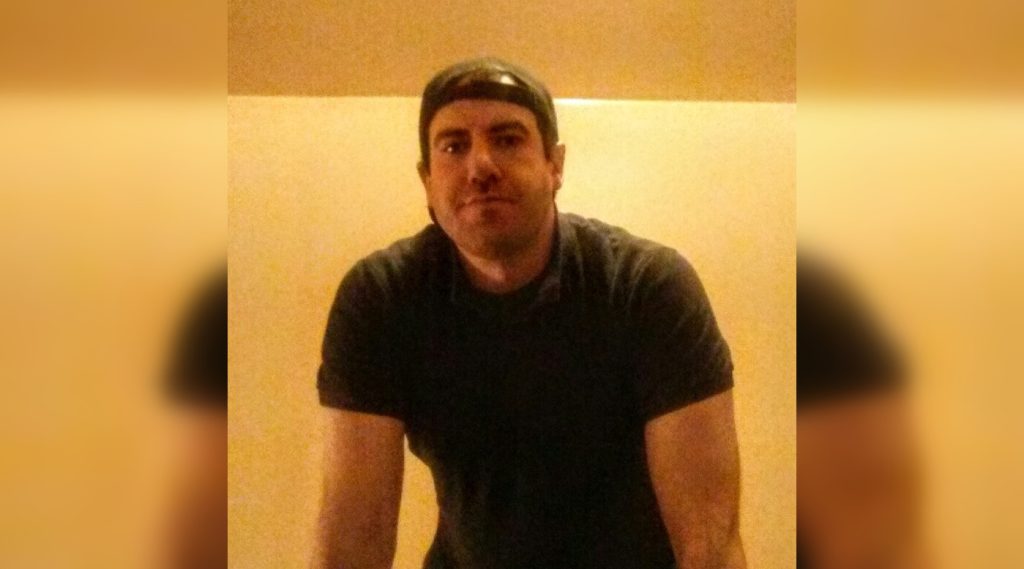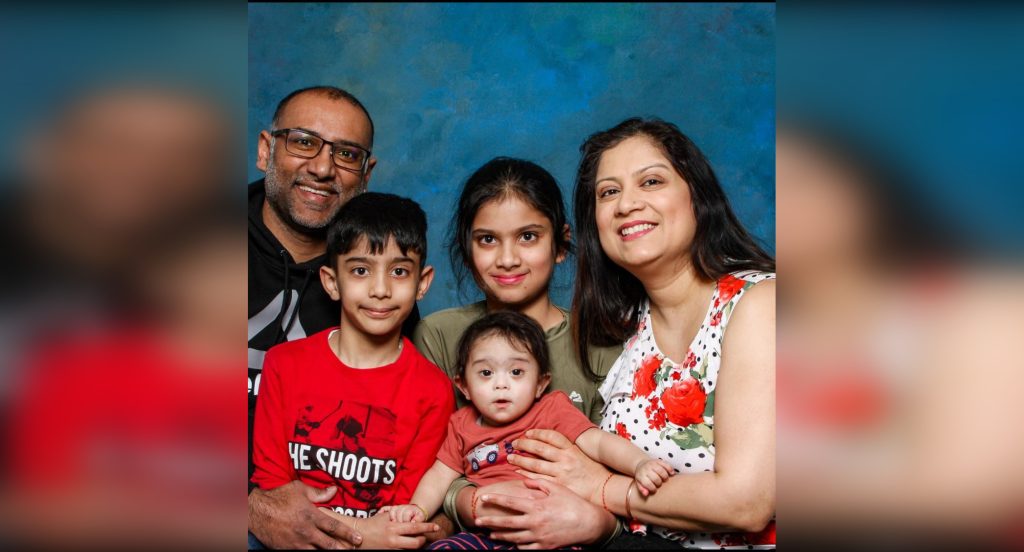Calgary mom calls for more mental health support after police fatally shoot son

Posted Feb 24, 2023 1:38 pm.
Last Updated Feb 24, 2023 1:39 pm.
It was Valentine’s Day when Calgary woman Shelley Croston got the heartbreaking news that her son, 34-year-old Mitchell Croston, had died after being shot by a police officer.
She was watching the noon-hour news when she heard about a shooting at the Franklin Industrial Park, but it wasn’t until hours later that she heard her son was involved.
About four hours later, officers with the Alberta Serious Incident Response Team (ASIRT) showed up at her door.
“I started screaming, ‘No, no, please don’t tell me, no,” she told CityNews tearfully.
Calgary police say the incident happened on Feb. 14 just after 4 a.m. in a commercial building on 2 Avenue between 30 Street and 28 Street in the Franklin industrial area.
Police say officers were responding to a break-and-enter in the early morning and allege the suspect assaulted an officer with a weapon. They shot him in response.
ASIRT has since taken over the investigation and has not disclosed what kind of weapon he was holding. The officer suffered minor injuries.
Mitchell, who was an aspiring rapper who worked at the Calgary Saddledome, was diagnosed with schizophrenia in his late teens and was also struggling with a fentanyl addiction, Shelley says.
He confessed his addiction to Shelley and told her he had been living on the streets since November of 2022.

Mitchell Croston, left, and his mother, Shelley Croston, pose for a photo together. (Courtesy of Shelley Croston, Facebook)
Shelley says she has struggled to get any sleep and has lacked energy since she heard the news, but speaks fondly of her son.
“He was a very gentle, kind, very warm, loving man who was just struggling with this schizophrenia, and … he’s been in and out of rehab,” Shelley said.
“He was out in the world … lost and confused. And he was seeking help.”
Shelley says she wasn’t sure how to feel at the time when she was speaking with police and other media outlets.
“But now I am angry, and I do want answers. And I feel that our healthcare system failed my son,” she said.
“I feel that the Calgary police had no training whatsoever to understand.”
Police-involved shootings on the rise
According to a report from Tracking (In) Justice, there have been 704 police-involved deaths since 2000 in the country, and 57 deaths in 2021. There have been 69 since January 2022.
Calgary has had 29 police shootings since 2000, with ten shootings happening since 2018. Mitchell is the latest person to be shot by an officer in Calgary.
“This group is concluding, I think accurately, that police lethal force is steadily increasing in Canada. So it’s a conversation that we need to be having,” said Jennifer Lavoie, an associate professor of criminology and psychology in the faculty of human and social sciences at Wilfrid Laurier University in Ontario.
She says anywhere from one per cent to 30 per cent of calls police receive involve a person with mental health disorders, someone in crisis or managing addiction.
Roughly 80 per cent of those in the tracking project had mental illness or substance use challenges, but Lavoie adds Canada doesn’t do a good job keeping track of shootings.
“We don’t know much about their mental health histories or addiction histories. Even race data is very poor in this country,” she said.
According to the report, Indigenous and BIPOC Canadians represent 27 per cent of the shootings, with the latter making up around 5 per cent of the population and the former around 4 per cent.
Related Video
Outside this tracking project, she says there is no official government body that tracks police-involved shootings across the country.
Meanwhile, mental health crises are the most challenging for police to respond to, as their training typically doesn’t involve these situations, according to Lavoie.
“Officers usually go to a place where the risks are unknown. They don’t have access to mental health information about that individual because they’re not part of their circle of care,” she said.
“Police are trained with a public safety focus in mind. So they’re predominantly trained in the use of force techniques and law enforcement. They are not specifically trained in de-escalation techniques, tactical communication, or specialized responding for a mental health crisis.”
Mental health crisis deeper than police issue
In response to Mitchell’s death, Calgary Police Chief Mark Neufeld said on Feb. 14, “At the end of the day, sometimes police are put into an impossible situation where somebody in crisis is in a place where the likelihood of achieving a peaceful outcome is almost impossible.”
But Lavoie says to call the situation “impossible” takes responsibility away from the police.
“I think we have to be careful about singling out people with mental illness as being more likely to have a situation that is impossible to resolve,” she said. However, she admits there may be no other option.
“We all have to accept that … the police are going to be going to situations that will not be possible to de-escalate. The level of public safety risk is so high that police are forced to make a decision about using necessary force to control that threat. And sometimes, that includes lethal force.”
She feels the situation goes beyond the police and points at other systems nationwide.
“This isn’t a policing problem. It’s much larger than that. It’s a community problem. And so it’s quite simplistic to blame the police,” she said.
“People come to the attention of the police because other systems have failed them. The mental health system is absolutely one that is in disrepair. It’s very fragmented. It cannot meet the demands of society.”
Reports from the Canadian Mental Health Association (CMHA) have shown children’s mental health has taken a toll since the pandemic, and adults mental health also suffered during that time.
Lavoie says the situation has gotten worse, and more focus needs to be placed on making services more accessible to the public.
In addition to the increased levels of mental illness and addiction, she says waitlists for hospitals providing mental health support are “extraordinarily long.”
“Families are trying to get their loved ones help, and it’s just so difficult,” Lavoie said.
Related Stories:
-
Calgary parents lose son while waiting for AHS help
-
AHS reviews 92-year-old’s downgraded 911 call
-
Latjor Tuel family demands answers on anniversary of death by Calgary police
Shelley says her son was turned away from the hospital multiple times due to his addiction, and while she feels the police need more training, she says there also needs to be more outward support for people like her son.
“The police system, the medical system, all of those systems have affected my son,” Shelley said.
“Why didn’t they use those rubber guns? Why did they have to shoot and kill my son, who’s been trying to get help and has been turned away at all the hospitals because they’re full?”
Lavoie says more needs to be done.
“The more we can move towards offering that kind of training for police is essential,” she said.
“But the focus has to be on offering more accessible mental health services, resources, and treatments, to the community to get in front of crises before they happen. That’s really where a lot of the focus and work needs to be as well.”








